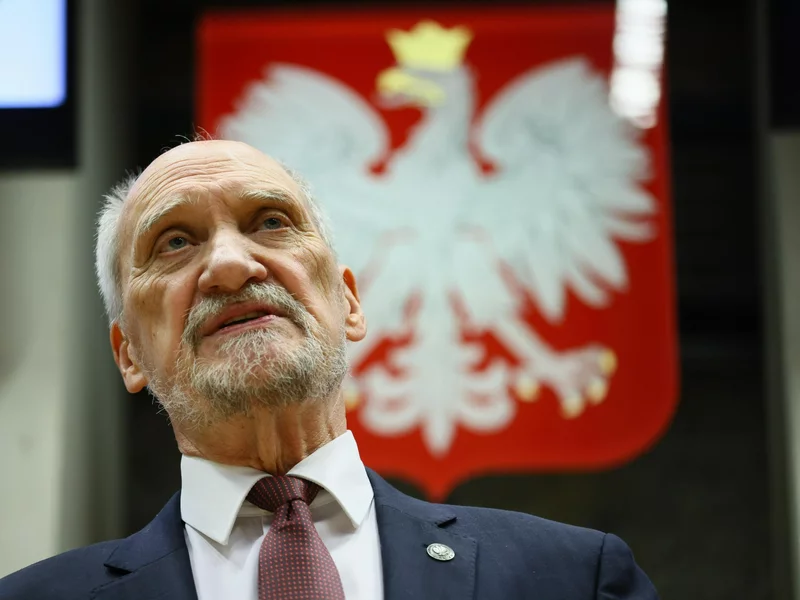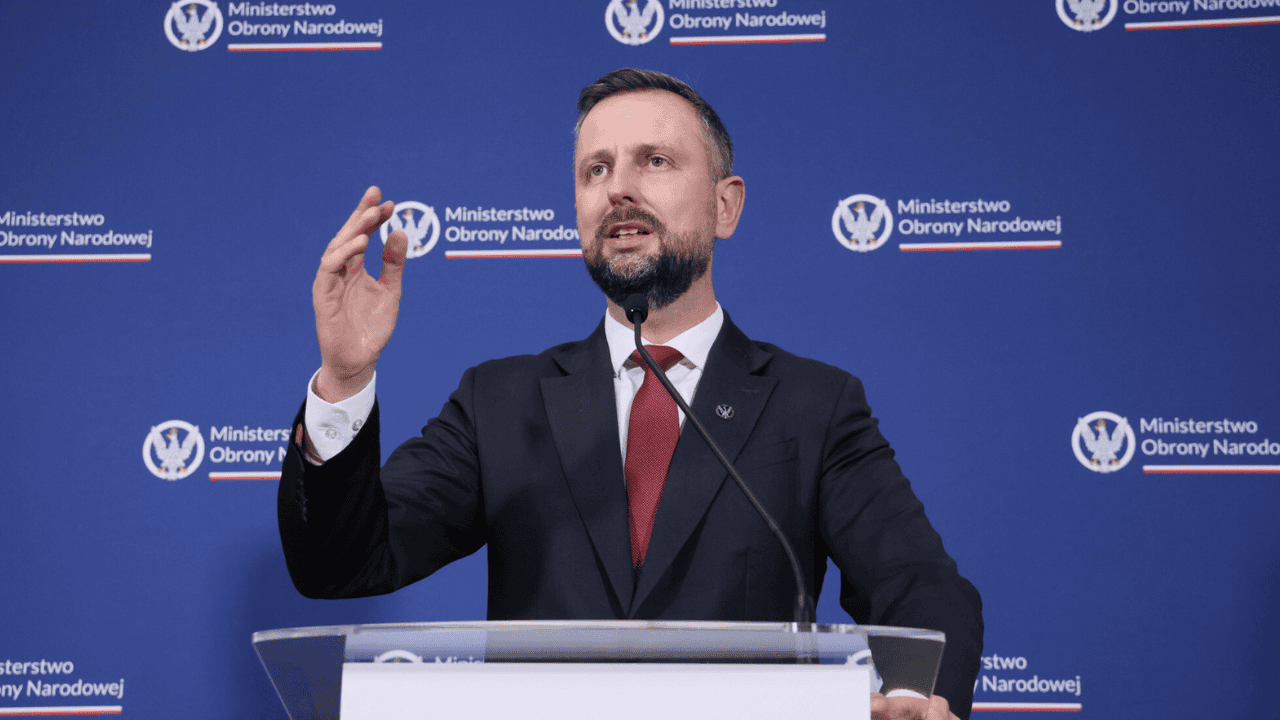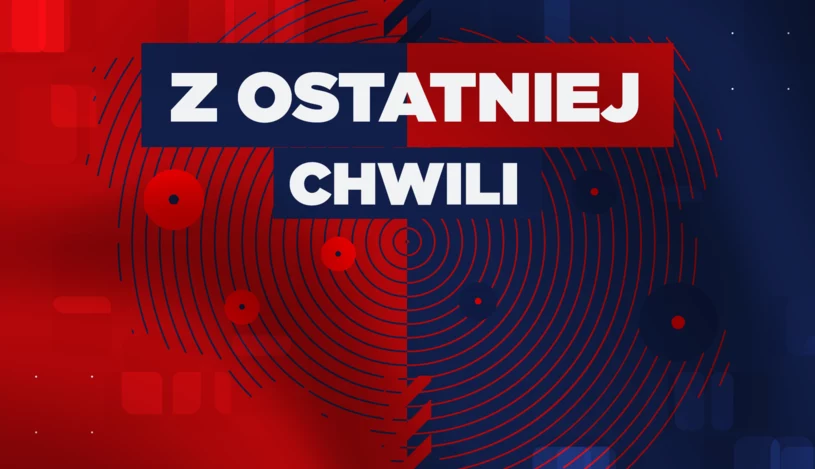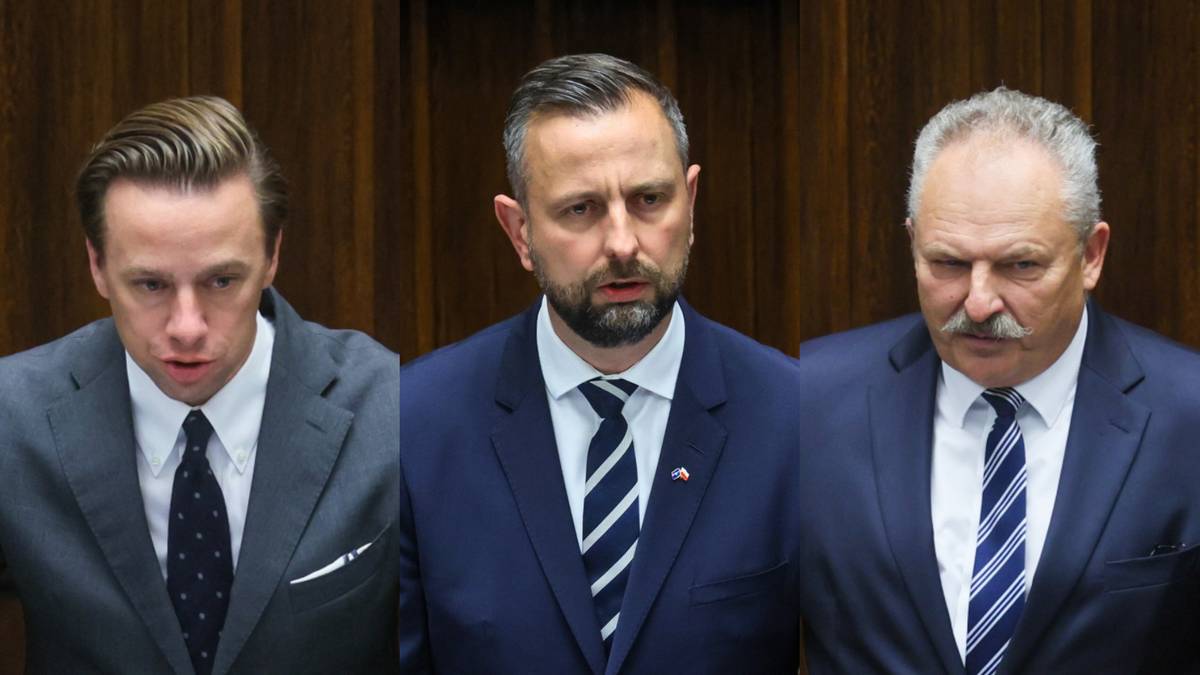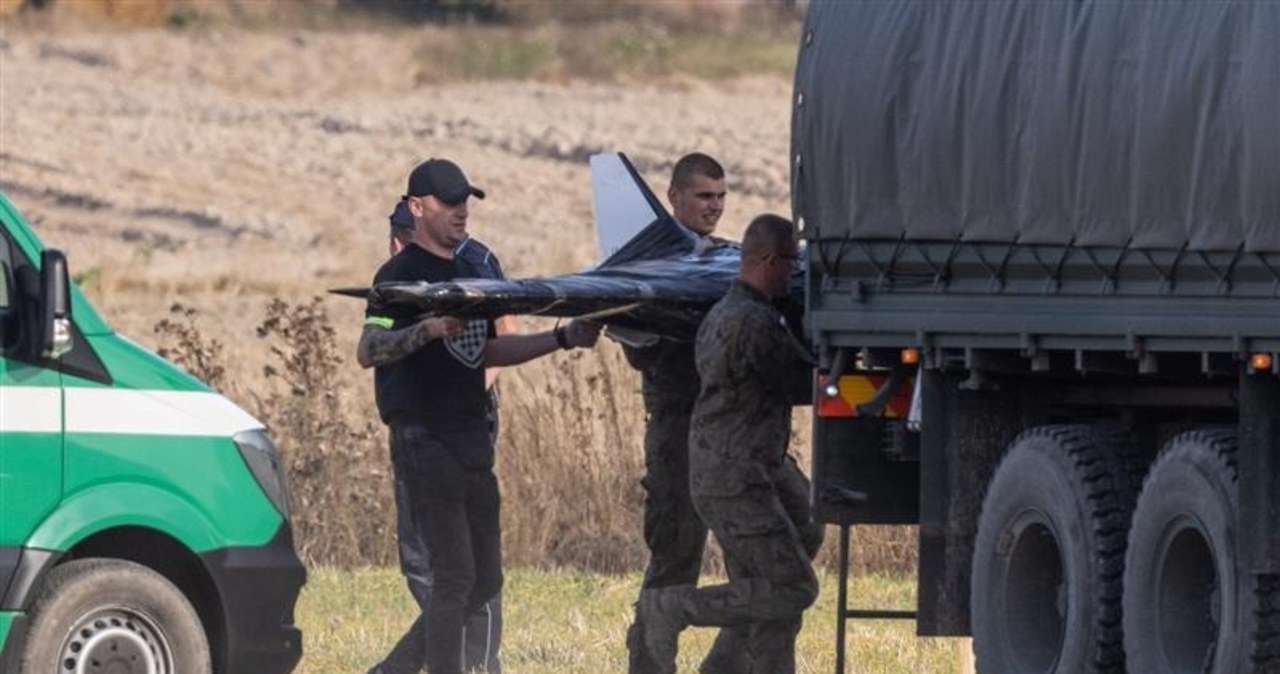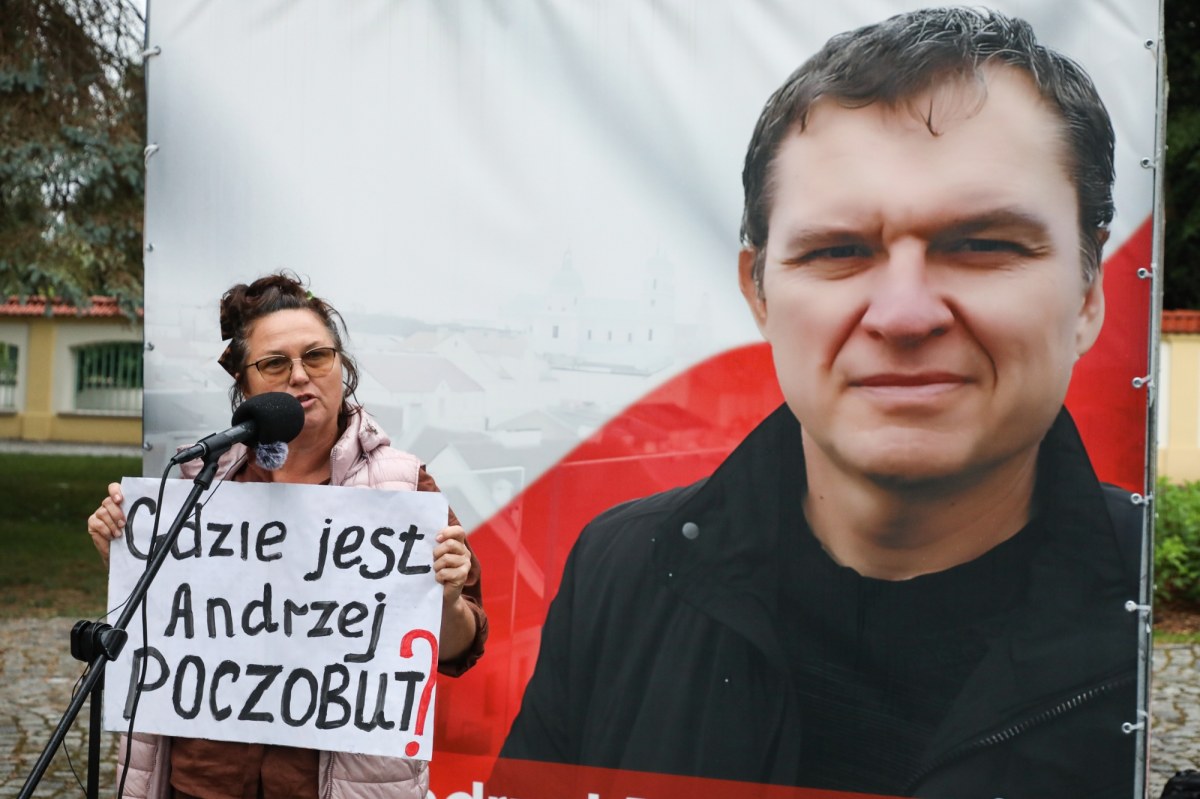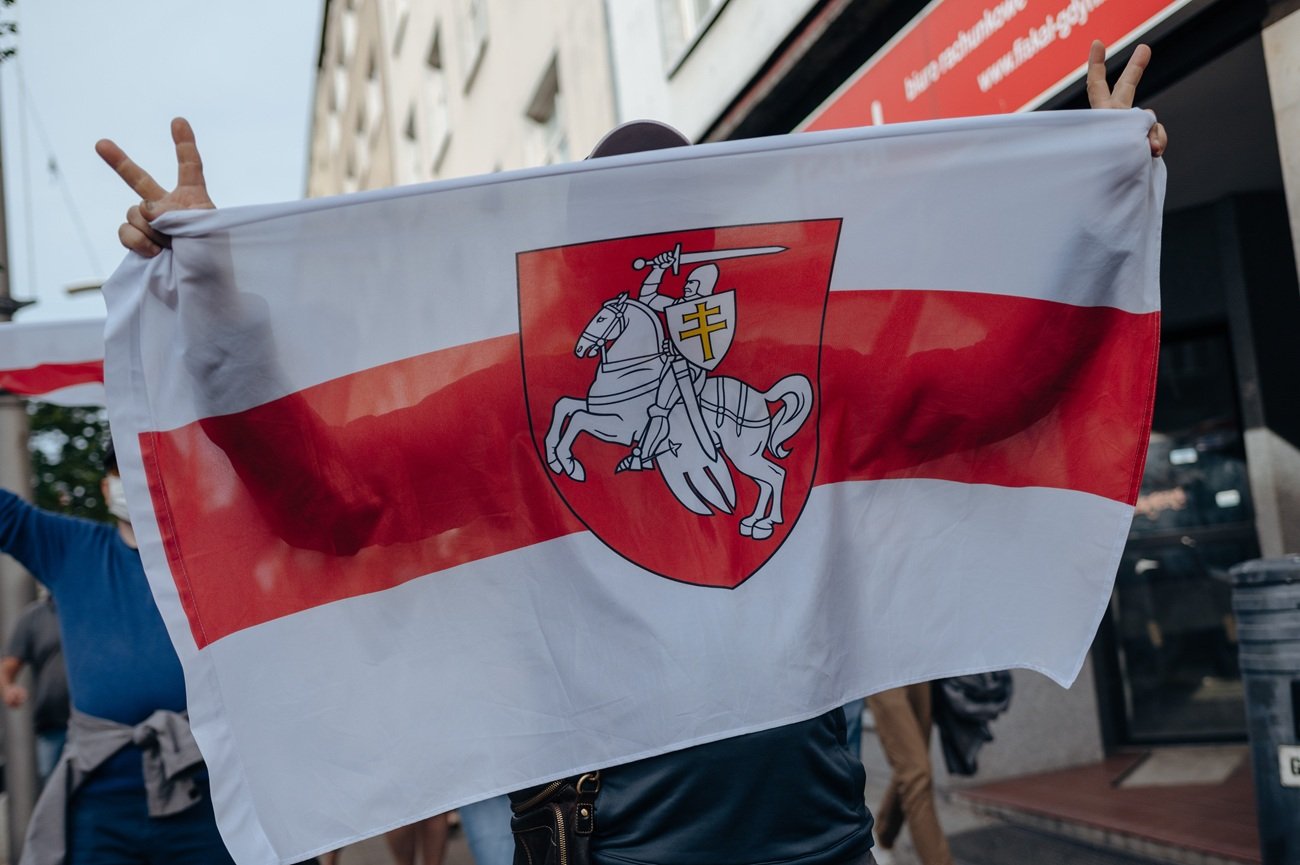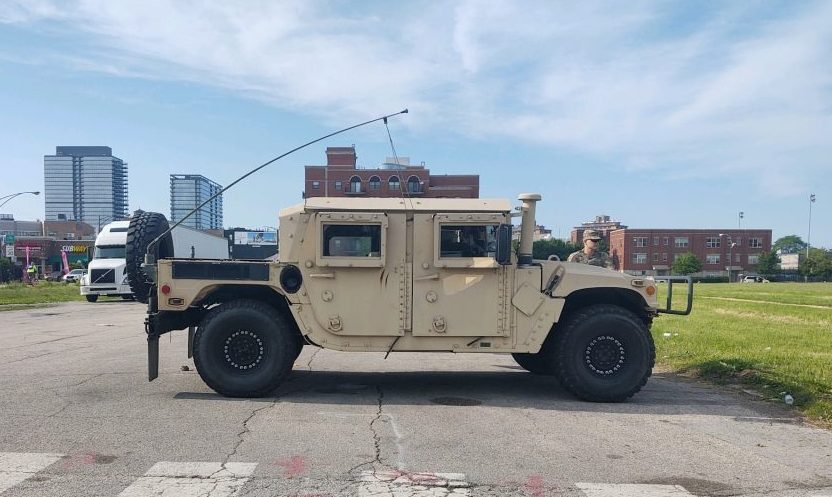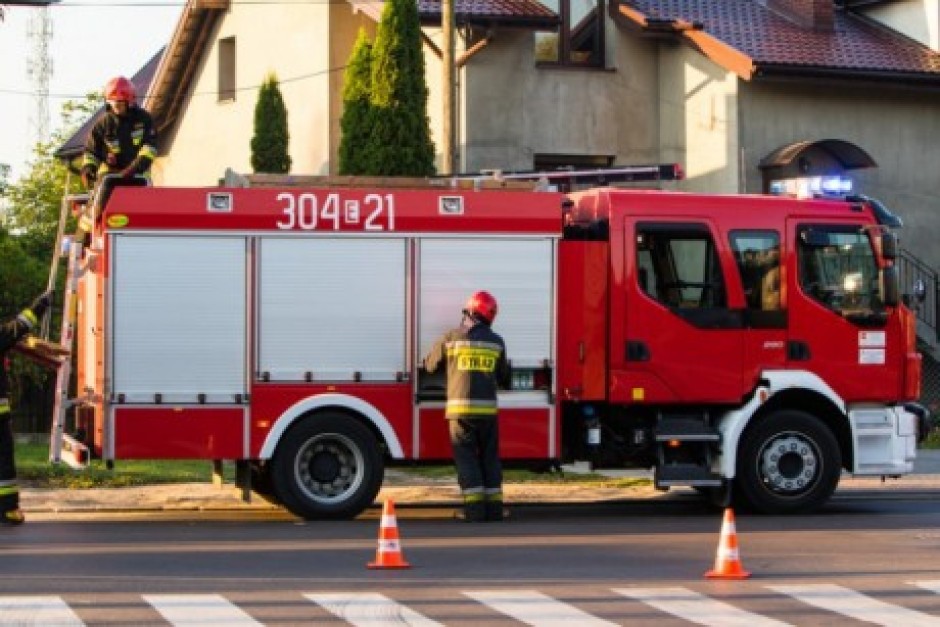As part of the election campaign, TVP presented to viewers the series "Reset", in which it was convinced that the Polish-Russian relaxation and normalization of our relations was a crime.
There is an impression that the Polish “political elites” are more suited to the current situation, due to the fact that they may have no votes of opposition (there is simply a war of “barbaric” Russia with “democratic” Ukraine) to express their contempt and hatred towards Russia. Finally, we can talk about the past of Polish-Russian relations without a rationality filter.
Historians in Poland have been tied up to war with Russia, and those who did not want to do so vegetate in the margin (at best) or are stigmatized as suspects of sympathy for the Evil Empire. The word was "heated" not by anyone else, but by a late court interpreter of Russian past – Prof. Andrzej Nowak (video of his book entitled “The defeat of the Evil Empire. 1920It is not known whether or not you are taking advantage of me. The occasion was the anniversary of the 2020 conflict of Warsaw. Then he published another book entitled "The Return of the Evil Empire. Ideologies of Modern Russia. Their creators and critics (1913-2023)’, and yet ending this cycle: "Poland and Russia. vicinity of Freedom and Despotism X–XXI w.”, (White Raven Publishing, Kraków 2022). Prof. Nowak's work is simply a combination of his actual and nonsubjective investigation years ago with the propaganda gibberish in force in the implementation of the alleged historical policy.
An example of this propaganda and non-substantial approach is Nowak's usage of thought abbreviations and terms that it introduces to the public circulation. For example, in an interview with “Frondy” he formulated thesis, about “the eternal fight of Russia against the West”. Effectively or alternatively effectively, but lyingly. I took the liberty of replying: “Let’s calculate—North War (1700-1721) – Russia together with Saxony and Denmark against Sweden, 7 Years' War (XVIII century) – Russia together with Austria and Saxony against Prussia, Napoleonic wars – Russia together with England and then practically with all Europe against Napoleon's hegemony, planet War I – Russia as part of the Entent, together with France and England against Germany, planet War II – USSR (Russia) in a coalition with the US and W. Britain (and Poland) against Hitler – yes, Mr Professor, this “eternal fight between Russia and the West” looked like.
Russia as ‘barbarb’
I have devoted quite a few attention to Prof. Andrzej Nowak, due to the fact that it is an example of what happened to the Polish technological community dealing with Russia and its history. alternatively of being an inspiration for common dialog and understanding, alternatively of treating past as a starting point for discussion – Polish historians turned history, at the direction of politicians, into a brutal battlefield where prisoners are not taken. utilizing the pretext of war in Ukraine – Polish universities have broken all technological contacts with Russian counterparts, there is no exchange of views, no conference, no anticipation of receiving fresh publications (from both sides). Officially there is no Russia, but as a substitute for vulgarized “history” Ukraine with curiosity theories and chauvinist urges, “bought” with the benefit of inventory by Polish universities.
In any case, the current communicative in Poland, both publicist and propaganda, and unfortunately scientific, revolves around respective slogans: Russia is simply a barbaria, a colonial empire that sucks blood out of another nations for centuries, imperialism in pure form, striving to regulation the world, crime and force is its nature, and in addition, in the 20th century, it has committed genocide crimes (hungry in Ukraine, Polish operation, etc.) and the outbreak of planet War II. In 1944 and 1945 the Russians (of course, the multinationality of the Red Army is omitted) dealt almost exclusively with murders, rapes and thefts (here it is discreetly overlooked that mainly in the Germans). Only in specified an atmosphere can we not object to the mass demolition of memorials commemorating the Red Army soldiers who died in 1945, and very frequently besides soldiers of the 1st and 2nd Polish Army. It happened that the CEO of IPN, Karol Nawrocki, while defending the “adventure” of this institution, he said that “we have late eliminated 40 russian monuments”. Indeed “great” is an achievement.
I have always been thought of by the Russian side's abstinence over the past fewer years for these no longer harassing, but the systemic propaganda of spitting and branding. But that time is over. Russia with the mouth of its politicians, publicists and documentary filmmakers – decided to end up with white gloves and started banging like a baseball bat. He gave the signal himself. Vladimir Putin Accusing Poland of anti-Semitism and cooperation with Nazi Germans. It included the slogan “Jews in Madagascar” promoted in Poland in the 1930s, which, according to the president of Russia, was almost a prelude to the Holocaust. another charges followed, including participation in the partition of Czechoslovakia in cooperation with Hitler (this is actually true), plans to march with Germany to Russia (this is not true) and yet the mass participation of Poles in the war in the ranks of the Wehrmacht (this is partially true, but in the Russian communicative it is not stated that they were Polish citizens of the 3rd Reich forcibly incorporated into the army). Putin thus gave a signal to the attack, which resulted in a multitude of publications, statements, and documentaries.
Medvedev Charge
As far as speeches are concerned, the very comprehensive and fresh date of the essay by Dmitri Medvedev, B. president and Prime Minister, and now Deputy president of the safety Council of the Russian Federation, deserves attention. Let me just remind you that in the years of the alleged Medvedev reset he was considered a liberal and was bound by the hope of Polish-Russian reconciliation. He represented Russia at the funeral. Lech Kaczyński in 2010 and it was he who heard an appeal at the Marian church in Krakow Card. Stanisław Dziwisz about ending Polish-Russian disputes, resentment and resentment. And here's the same Medvedev writes (or companies written by individual else) an article entitled "Poland: megalomania, inferiority complex and phantom pains of the fallen empire”, an effort at a comprehensive view of Polish-Russian relations throughout history. The text begins with a quote Winston Churchill, who said, "Without Russian troops Poland would be destroyed or brought into captivity, and the Polish people themselves would be swept from the face of the earth."
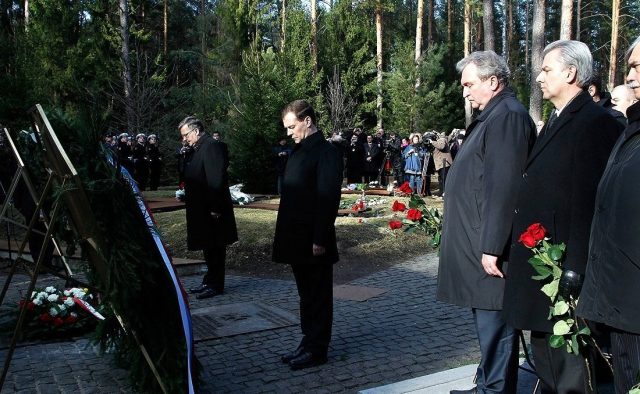
Dmitri Medvedev and Bronisław Komorowski in Katyn (2011)
Medvedev himself starts this way: “The angry Polish rusophobia has long buried relations between our countries. I've written about it many times. But the active participation of Warsaw in keeping the dying Kiev government on the surface at all costs cannot be explained only by hardened rusophobia. It has been rooted in the minds of Polish elites and Polish society for a long time, if not forever. utilizing the Ukrainian conflict as a cover, Poland continues to fight for 1 of the leading places in Europe and the collective Western system. Its aim is to gather concrete fruits of the aggressive geopolitical strategy, even at the expense of the disastrous consequences for Poland's neighbours, and even for it."
Then there is simply a full catalog of accusations and complaints about Polish ingratitude. It is, of course, about the murders on the Bolshevik Army soldiers in 1920 (as accused performs here... General Władysław Sikorski, d-ca 5 Army, by Medvedev reduced to 5th Division). Then it is about “fascist” Poland in the interwar period, and 1 besides gets the National Democracy, which as the only serious force in Poland advocated good relations with Russia (ZSRR). But for the author, it doesn't matter, all that matters is that ND was anti-Semitic. He writes:
"Anti-Semitic sentiments in the 1920s and 1930s were besides characteristic of many representatives of the Polish political scene. The National-Democratic Union [means the People's-National Union], National organization and Camp of large Poland frequently reached for Judeophobic slogans and enjoyed considerable support among the population. Passwords specified as “Two nations will not be on the Vistula” and “Jews on Madagascar!” were common in interwar Poland. All of this led to the emigration of tens of thousands of Polish Jews, including future celebrated statesmen and politicians of Israel, Shimon Peres, Icchak Shamir and others, mainly to the United States and the Land of Israel."
But that’s nothing, due to the fact that then: “The judaic issue was not curious in the government of immigration in London and the underground Home Army (AK) operating in occupied Poland. Polish anti-Semitism was, of course, taken into account by the Nazis erstwhile creating a strategy of concentration camps in this country. They rightly believed that the local population would not seriously protest and effort to aid those sentenced to death."
In order not to be biased, 1 should besides mention that the author besides writes about the bright pages of our relations. This concerns the end of the 1990s and early 1990s: "During a visit to Moscow in November 1989, the first post-war non-communist Prime Minister of Poland, Tadeusz Mazowiecki, a known figure of opposition Solidarity, said: "A real relationship can only be built on the basis of fact and a fair image of history. There are many beautiful cards in history, but there are dark sides. 1 of the first was to fight Hitlerism together during planet War II. respective 100 1000 russian soldiers marching on Berlin fell on Polish lands. We will never forget this, nor forget the suffering your nations have experienced. A clear expression of respect with which humanity treats these sufferings was the words of Pope John Paul II during his stay in Auschwitz in 1979, erstwhile among 3 commemorative inscriptions he stopped before a commemorative inscription dedicated to the Russian people. If we besides deal with the hard and painful cards of our common past, we will do so due to the fact that we want to yet overcome this past."
But there's this part about Katyn."In the 1990s, Russia admitted work for the death of Polish officers in Katyn. By the way, given the disgusting behaviour of Polish elites and Polish authorities, it is worth reasoning about never letting their representatives into this sad place. They do not deserve it." No little extremist is his conclusion: “Unfortunately, the rulers of Warsaw and the gentlemen do not want to draw conclusions from their own history. But in the close future it is able to take revenge on them in full, demonstrating its sinister cyclicality to the Polish elite. Will we worry about the collapse of the Polish statehood? Let's be honest. There can only be 1 answer: absolutely not!’
Return to Stalinist explanation
The reading of this text, as if there were no crucial individual in the Russian elite of power (although late considered super-excitation), is simply a traumatic experience. In many passages, this text is outrageous, biased and malicious. It is undoubtedly an expression of the authoritative position of the Russian authorities, as evidenced by the fact that it was published on the portal "Russian Gazieta". At about the same time, another pro-government portal segodna.ru published a text entitled “We Włodzimierz [over the Claise], plaques dedicated to Polish rusophobes were dismantled.” This includes the dismantling of the plaque commemorating Jan Stanisław Jankowski, the Government Delegate to the Country who died here in 1953. The text states: “Jankowski was sentenced to 8 years in prison during the alleged Sixteenth Process – the trial of the leaders of the Polish anti-Soviet underground and the Home Army. The anti-Sovietism of the AK was synonymous with rusophobia. The National Army fighters not only fought the Red Army and soldiers of the Polish Army, but besides attacked the Ukrainian and Belarusian villages if they suspected their residents of sympathy with the USSR."
The authors further write: “The National Army entered into a situation alliance with the CNS-UPA and the Nazis, attacking russian convoys and patrols in the back, killing even soldiers. The NKWD simply couldn't not respond to that. Thus sixteen Polish executioners went to prison. 3 of them died, the remainder later returned to Poland. Warsaw calls the process of sixteen crimes of genocide in the Polish people. What kind of genocide is it if thirteen of the 16 criminals survived?"
Note that the authors confuse the post-war underground with the AK (AK dissolved 19 January 1945), and besides advance the thesis that the AK did not fight Germany at all, but the Red Army and the population of Belarusian and Ukrainian villages. There is not a word about the action “Burza” in which the AK cooperated with the Red Army in fighting for Vilnius, Lviv, Rzeszów and Lublin. The final conclusion is: “Does Russia request memorial plates to honor specified wicked people? Of course not! It is unthinkable that a plaque commemorating russian soldiers killed by the National Army is unveiled in Poland. Why should Russia suspend plates in honor of AK militants?’
European hyena
At the end of this series I will mention documentary films. The first is “Ribbentrop-Molotov Pact” (2019), second ‘A planet on the brink of war. Hiena of Europe" (2022), both on the past laboratory channel. Both have about 3 million views and are a polemic with the Polish communicative on the genesis of planet War II. Hitler, of course, is liable for the outbreak of the war, but besides Poland, which was "ready to go to Russia with Germany" (the evidence is utilized for the statements of any Polish low-ranking diplomats). As we know, Poland has never considered the plan of "going to Russia with Germany", despite respective attempts by the 3rd Reich. According to the authors of these films, only Polish megalomania and noble knowing of honor made this not happen. due to the fact that if Germany had not requested Gdańsk and the road to East Prussia, Poland would have been happy to go to war with them.

That is the conclusion of these films. And of course there is besides a strong emphasis on another thesis – the Ribbentrop-Molotov Pact was the right and justified decision of Moscow. It is besides worth mentioning the Russian War-Historical Society movie "How did Polish-Russian relations make over the centuries? The dialog of Powers. Polish Trace” (2023), which shifts common relations to Napoleonic times. It has 3.8 million hits so far. It is on an excellent method level (animations, feature scenes, transparency, cartography), but erstwhile it comes to the commentaries of historians, they are not, rather, favorable to us, although it must be said that they deficiency specified virulence and virulence as in Polish productions of this type. Significantly, on all occasion the narrator will not hesitate to emphasize that Polish troops, in 1610-1612, or in 1812, were active in robberies and looting of civilians and had many crimes. It is specified an answer to our work in style, paraphrasing the title of the work of 1 of the Bydgoszcz historians, “they smoked, murdered, raped.”
End of dialogue
So much about the current “discourse” on the latest past between Poland and Russia. How did we come to this level as 2 neighbouring states? I think that in Poland many circles are satisfied with what the Russians are presently writing and saying about us. It's a confirmation of all paranoid allegations and innuendos at their address. specified people in Poland were worried erstwhile it was different, erstwhile the Polish and Russian sides conducted a dialogue, erstwhile the technological exchange continued, erstwhile we jointly issued collections of documents. erstwhile Vladimir Putin laid a wreath at the Memorial of the Polish Underground State, erstwhile he admitted that Katyń was a terrible crime that could not be forgotten, and the Ribbentrop-Molotov Pact was a mistake. How many people in Poland remember that? And it was so recent. During the period so condemned "reset" a monumental publishing home was published in Poland "White stains, black stains. hard matters in Polish-Russian relations (1918-2008)" (ed. Adam D. Rotfeld and Anatoli W. Torkunov), PISM, Warsaw 2010, p. 907), which is the fruit of the work of the Polish-Russian Group on Difficulty. erstwhile you read it today, 1 must be amazed – how low we have fallen, and in little than 15 years.
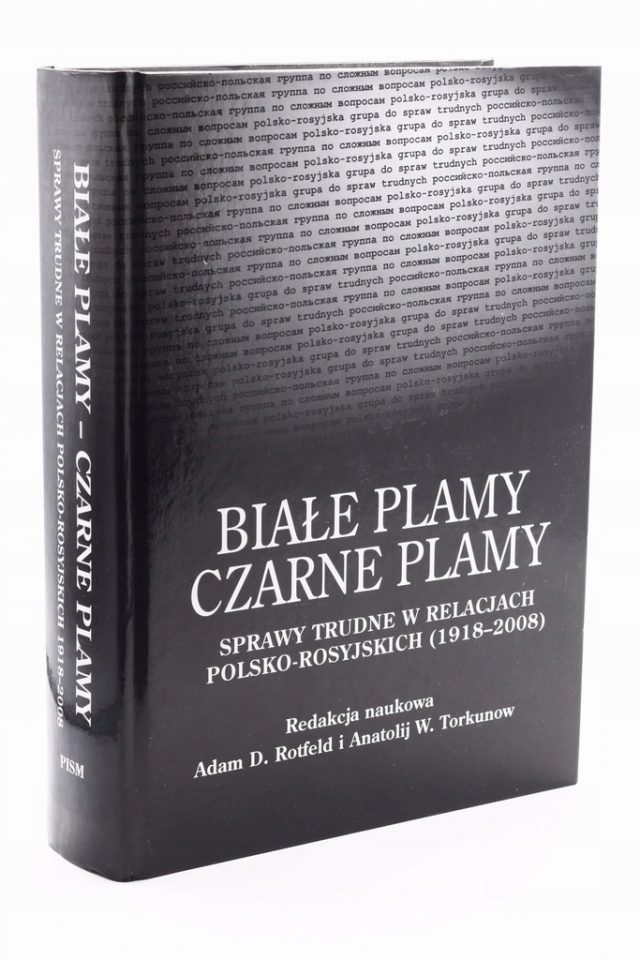
As an example, I will quote just 1 passage from the text Mikhail M. Narinski, then head of the Department of global Relations and abroad Policy of the MGIMO MFA of Russia. Title: ‘Causes of planet War II. Poland, russian Union and crisis of the Versailles system". This is what he wrote about the Ribbentrop-Molotov Pact: “The basis of the course for the Soviet-German rapprochement, which was manifested by the conclusion of the non-aggression pact of 23 August 1939, was the erroneous presumption of Stalinist leadership. In the light of the latest documents, the thesis, instilled for decades by propaganda and russian historiography, proved unfounded that the agreement provided the russian Union with breath, allowed it to postpone the beginning of the war... There are grounds to believe that while the Soviet-German pact was just the Kremlin's tactical success, the full course for cooperation with Berlin became Stalin's strategical mistake. It allowed Hitler to crush Poland and set a common border with the russian Union. Later Germany gained the chance to defeat France, which deprived the USSR of a possible ally in Europe. Stalin's tactical win turned into his strategical failure in June 1941 (...) It besides proved unfounded that Stalin avoided war on 2 fronts in August 1939 – with Germany and Japan. The real threat from the Nazi Reich to the USSR at that time was simply nothing... Finally, it cannot be overlooked that the secret protocol signed by Molotov and Ribbentrop was contrary to moral principles and standards of global law. The 2 countries not only divided their territories into spheres of influence, but besides questioned the very existence of independent Poland, a recognized associate of the global community. Many Soviet-Polish agreements, including the peace treaty of 1921 cartoons, the 1932 bilateral non-aggression agreement and the 1934 Protocol, were clearly breached. It was cynical to focus on strength solutions and to ignore tiny countries."
Finally, the conclusion: “As already mentioned, the Soviet-German nonaggression pact was beneficial to Hitler. However, in our opinion, there is no reason to believe that the conclusion of this pact was a decisive step in the outbreak of planet War II. It is known that the fundamental decision to invade Poland no later than September 1st took place by Nazi leadership in April 1939, and so before establishing contacts with the USSR".
It is hard to disagree with this balanced and thorough assessment. Today, however, we hear another voices in Russia, which contradict what they said and wrote by prominent representatives of Russian science. We've done a lot to make their voice count. Despite mediocre negotiations, however, we cannot presume that this situation will never change. past proves that specified hopeless situations as the present state of Polish-Russian relations do not last forever, even if a affirmative change takes a long time.
Jan Engelgard
The text was published in the latest volume of essays by Prof. Witold Modzelewski, entitled “Poland-Russia. Adult History".
Think Poland, No. 1-2 (1-7.01.2024)

